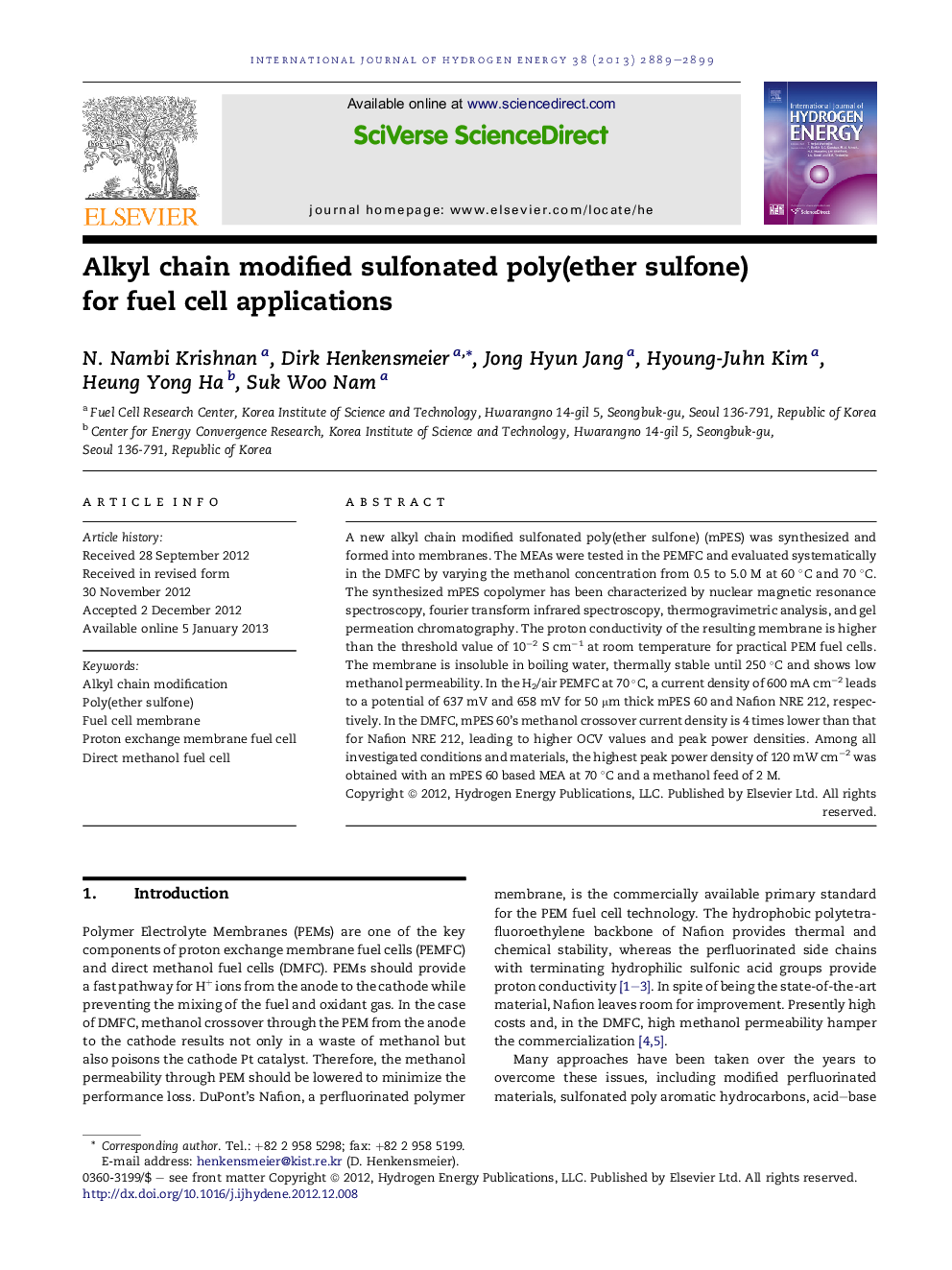| Article ID | Journal | Published Year | Pages | File Type |
|---|---|---|---|---|
| 1273821 | International Journal of Hydrogen Energy | 2013 | 11 Pages |
A new alkyl chain modified sulfonated poly(ether sulfone) (mPES) was synthesized and formed into membranes. The MEAs were tested in the PEMFC and evaluated systematically in the DMFC by varying the methanol concentration from 0.5 to 5.0 M at 60 °C and 70 °C. The synthesized mPES copolymer has been characterized by nuclear magnetic resonance spectroscopy, fourier transform infrared spectroscopy, thermogravimetric analysis, and gel permeation chromatography. The proton conductivity of the resulting membrane is higher than the threshold value of 10−2 S cm−1 at room temperature for practical PEM fuel cells. The membrane is insoluble in boiling water, thermally stable until 250 °C and shows low methanol permeability. In the H2/air PEMFC at 70 °C, a current density of 600 mA cm−2 leads to a potential of 637 mV and 658 mV for 50 μm thick mPES 60 and Nafion NRE 212, respectively. In the DMFC, mPES 60's methanol crossover current density is 4 times lower than that for Nafion NRE 212, leading to higher OCV values and peak power densities. Among all investigated conditions and materials, the highest peak power density of 120 mW cm−2 was obtained with an mPES 60 based MEA at 70 °C and a methanol feed of 2 M.
► Synthesis and characterization of an alkyl chain modified poly(ether sulfone) (mPES 60). ► PEMFC: performance of 50 μm thick mPES 60 is comparable to that of commercial Nafion 212. ► DMFC: systematic variation of temperature and MeOH concentration is reported. ► DMFC: highest observed peak power was 120 mW cm−2 (2M MeOH, 70 °C, 50 μm mPES 60). ► Methanol crossover of mPES 60 is 25–47 mA cm−2, that is 4–8 times lower than that of Nafion 212.
